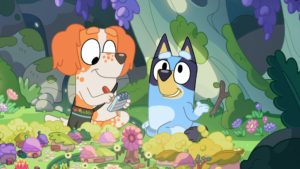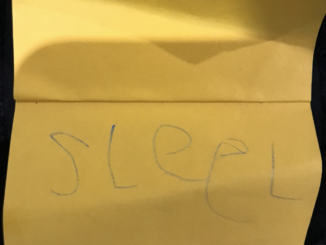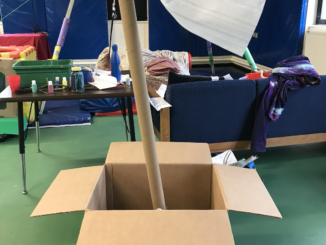Something that I desperately wish that we saw more of in the US is letting kids learn literacy on their own terms, without the intense pressure that it often carries.
(I know that this is rampant outside the US, too. I just can speak the most authoritatively from within my own window of experience.)
Children grow up literally not able to remember a time when people weren’t trying to shove reading down their throats.
I did some cursory Google searching, and found that websites oriented at laypeople (i.e., not scholarly sources) suggested the following:
-two-year-olds should know the letters, and the ABC song.
-kids should know the letters of their name by two or three.
-four-year-olds should know all the letters of the alphabet, their order, and what sound they make.
-kids should know the whole alphabet before going into kindergarten at age 5.
This is not just me picking from one website, this is the whole front page of Google results (except for one blog, Busy Toddler, that I love!)
I actually believe that a LOT of the problems that we are suddenly seeing in spades in early childhood education are a result of intense academic pressure (especially around literacy) too early. A lot of the other things I’ve written here about—like form constancy in letters, or reversals, or pencil grasp—they’re things that kids get referred to OT for when they’re 5 or 6 or 7, when really the problem is that those things shouldn’t have been pushed on them so early in the first place. If they’d had the chance to develop at their own pace, they might’ve “gotten it” by 6 or 7 or 8 naturally.

One thing that I love about Bluey is that the kids are supposed to be 6 and 4 years old and there is barely ever a single word about literacy. Bluey asks an older girl (12) if she can “write letters and words” and the older girl writes a note that Bluey dictates to her. The family plays a guessing game about what sound (not what letter) words start with — “I know a food that we all like that starts with ‘buh’.” They sing songs and recite rhymes and poems and read books and tell and hear stories. They draw elaborate drawings and tell the parents what they’re about. But no one ever insists that they write them down.
I have been told that this is not necessarily actually representative of Australian early childhood education—but it is still a breath of fresh air to see represented on TV. I don’t have any problem with kids’ TV shows like Sesame Street or other educational programming talking about the alphabet casually, or what sounds letters make. I just have a problem with it when it bleeds into education and we start feeling like kids MUST know all of those things instead of treating it like interesting knowledge about the world to share with them.
The actual building blocks for literacy that little kids should be engaging in have nothing to do with knowing the ABC song specifically, knowing the letters by name, their order, or what sound they make, all before they ever go to kindergarten or kindy or reception.
Instead, literacy for little kids should look like:
- Reading books most days or every day.
- The kids getting the chance to “read” those books in the way that is appropriate for them at the time…this might look like “turning the pages really fast”, “wanting the same book over and over”, “pretending to read it to you or reciting it to you”, “skipping pages or going back pages”, “asking you what things are in the pictures” etc, and not always like sitting down and reading it cover to cover.
- Learning songs, rhymes, and wordplay.
- Hearing a rich variety of vocabulary from different places—parents, friends, audiobooks, shows, podcasts, etc.
- Drawing and assigning meaning to the drawings (aka, telling you about their picture). Also note that kids often draw “experientially” — they may not draw a static picture, the way adults do, but instead intend for the pen moving around to represent movement or, e.g., a car driving around. So we look at it and see “static scribbles” and they meant “the movement of wind in the trees”!
- Pretending to write, writing imaginary letters, writing the letters that they do know mixed up with imaginary letters, writing long pretend scrawls…all as part of play, perhaps to “take your order” in a restaurant or to “make a grocery list” or to “write a book”, which also means…
- They need to have seen an adult model for them why writing is meaningful or important — aka NOT in an academic context, but for life function or for joy!
- Talking about the sounds in words more so than the letters’ names (which are arbitrary). Exactly like the example in Bluey.
But really. There is so much more to life than academics. Even as important as literacy is. We don’t do that importance any favors by bulldozing our children with it before they’re ready for it. All we do is ensure that they can’t remember any part of their life where they weren’t under intense pressure to know letters and reading, and rob them of more play-based learning and giving their brains time to develop to be ready to learn those things.



